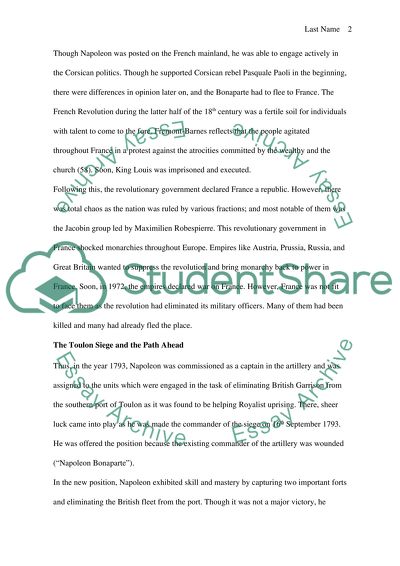Cite this document
(“Rise and Fall of Napoleon Bonaparte Essay Example | Topics and Well Written Essays - 1750 words”, n.d.)
Retrieved from https://studentshare.org/history/1450461-rise-and-fall-of-napoleon-bonaparte
Retrieved from https://studentshare.org/history/1450461-rise-and-fall-of-napoleon-bonaparte
(Rise and Fall of Napoleon Bonaparte Essay Example | Topics and Well Written Essays - 1750 Words)
https://studentshare.org/history/1450461-rise-and-fall-of-napoleon-bonaparte.
https://studentshare.org/history/1450461-rise-and-fall-of-napoleon-bonaparte.
“Rise and Fall of Napoleon Bonaparte Essay Example | Topics and Well Written Essays - 1750 Words”, n.d. https://studentshare.org/history/1450461-rise-and-fall-of-napoleon-bonaparte.


